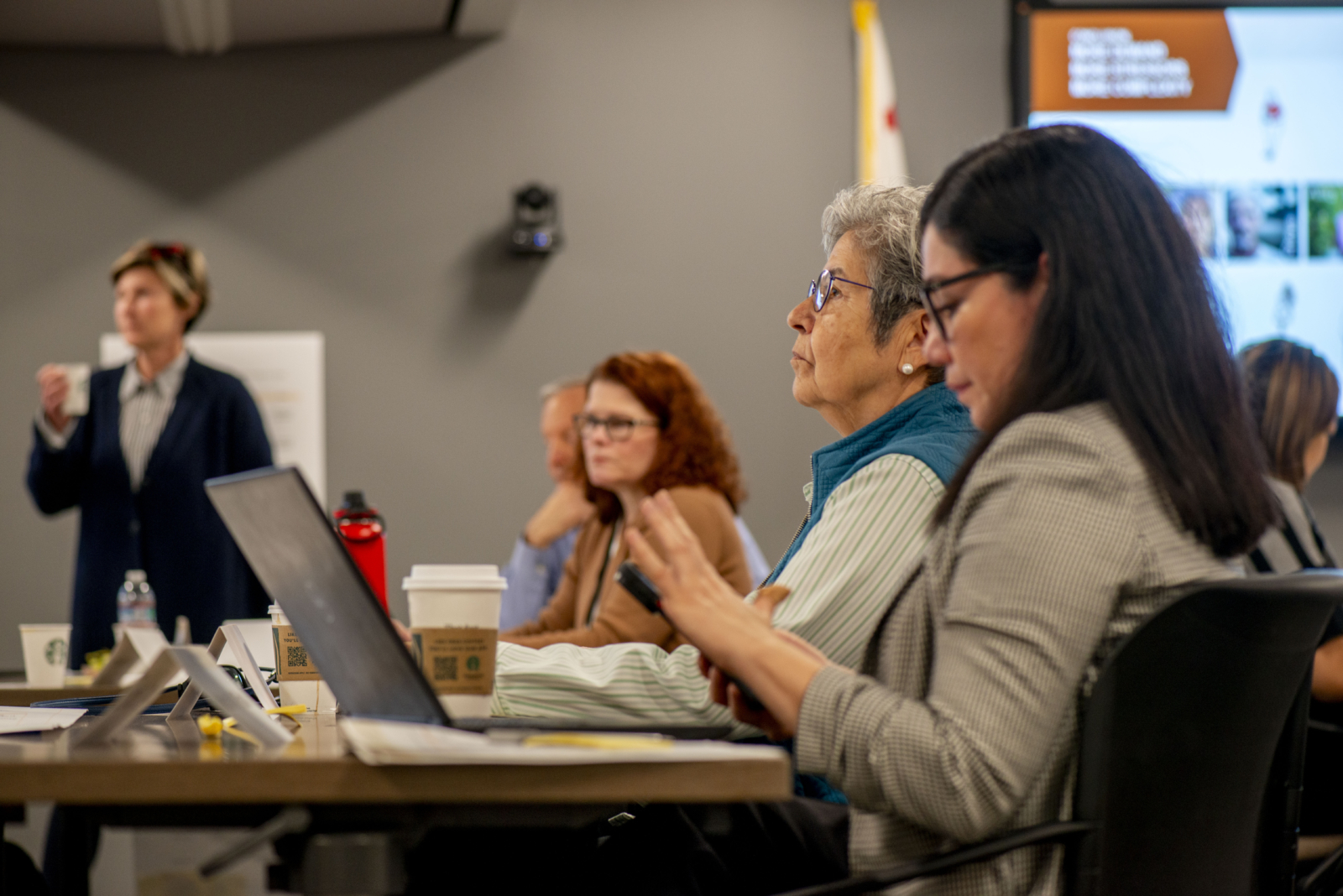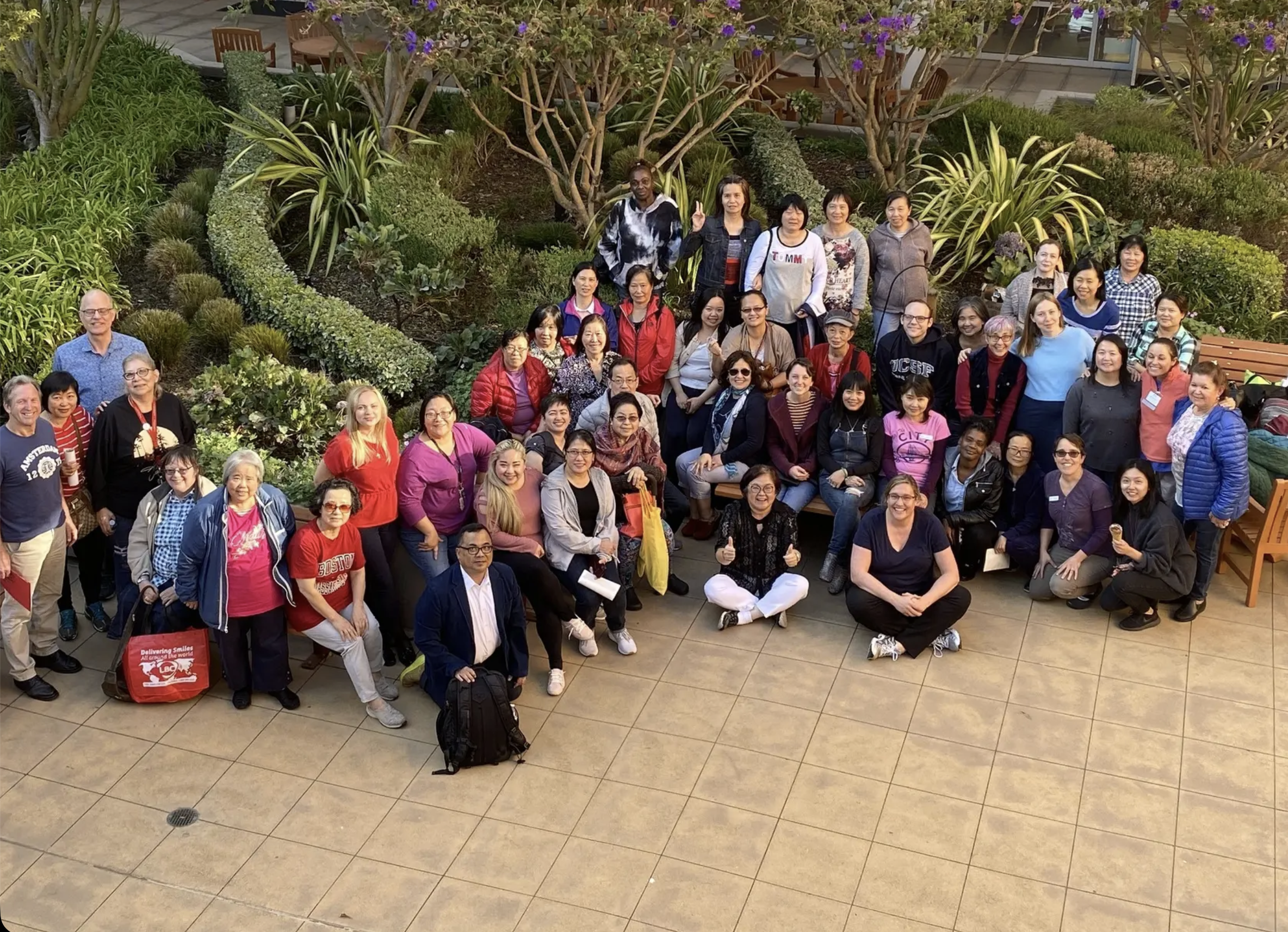
Prioritizing Accessible, Effective Services for Older Adults: Strategic Planning with the California Department of Aging

California is home to one of the nation’s fastest-growing and most diverse aging populations. As the size and complexity of this population continue to increase, the California Department of Aging (CDA) recognized the pressing need to prepare the California Aging Network to meet future demands. How can a state-wide system ensure its services remain relevant, accessible, and effective for millions of older adults, especially when navigating the complexities of rapid growth and evolving needs?
To address these challenges, CDA chose to activate some of the recommendations from the CA2030 project and chart a path forward. They partnered with Collaborative Consulting to develop its 2025-2028 strategic plan to strengthen the network’s capacity and align staff and stakeholders around priority strategies. This effort required revisiting foundational values, identifying gaps, and creating a plan to prepare the network for the future.
The California Department of Aging (CDA), California’s federally designated State Unit on Aging (SUA), operates under the California Health and Human Services Agency and administers programs serving older adults, people with disabilities, and caregivers. The department oversees Area Agencies on Aging, contracts with Multipurpose Senior Services Program agencies and Caregiver Resource Centers, certifies Adult Day Health Care Centers, and administers a Long-Term Care Ombudsman program with oversight of licensed facilities statewide. CDA collaborates with multiple state departments to advance its mission of supporting wellness, longevity, and quality of life for Californians through comprehensive service delivery and strategic partnerships.
- Designed and deployed a staff engagement process (one survey and a series of focus groups).
- Conducted promising practices research on other SUA’s approaches to strategic planning.
- Facilitated strategic implementation planning with CDA’s executive leadership team.
- Developed the strategic plan content with ongoing input from CDA’s executive leadership team.
- Created communication materials for internal and external audiences.
CDA engaged Collaborative Consulting for our experience developing and deploying a comprehensive strategic planning process. The project’s goal was to equip the California Department of Aging (CDA) with a forward-looking strategic plan to strengthen the California Aging Network’s capacity to meet the needs of a rapidly growing and increasingly complex aging population. The project focused on:
- Developing a strategic framework and plan that involved working closely with executive leadership, incorporating input from staff, and integrating learning from past network-wide projects such as CA 2030.
- Ensuring ownership and a commitment to implementation from executive leadership through a collaborative and participatory approach.
- Preparing clear, audience-tailored materials to support executive leadership in effectively communicating their strategic priorities to staff, stakeholders, and the public.
We conducted internal and external research to design a four-year strategic plan for CDA. We engaged CDA staff through focus groups and an open-ended survey. We gathered perspectives on CDA’s current and future strategic direction and priorities from 150 staff members. We also researched other states’ strategic planning practices, including a nationwide scan of SUA organizational structures and strategic planning efforts, a content analysis of 12 SUA strategic plans, and interviews with three SUAs that took different approaches to strategic planning. Drawing from this research, we met bi-weekly with three CDA leaders and monthly with CDA’s executive leadership team to develop and refine a strategic framework for their plan, which was used to organize the department’s strategic goals and objectives.
The project culminated in developing an internal implementation plan, including responsible parties, tasks, deliverables, performance indicators, and communication strategies. Ongoing engagement with the executive leadership team helped ensure that the implementation plan details were accurate and that the objectives were well understood by the individuals responsible for leading and implementing the strategies. We recommended a structure to keep the department updated on strategic successes and barriers and to revise strategies when needed. We also developed a presentation on the strategic plan that CDA will use to onboard new staff, socialize the plan with existing staff, and inform stakeholders about the department’s upcoming priorities.
Collaborative Consulting supplied CDA with a clear, actionable, and future-focused strategic plan that aligns its wide range of initiatives and priorities under a cohesive framework. By engaging staff and leadership throughout the process, the plan reflects a shared vision that CDA feels connected to and is committed to championing.
The executive leadership has tailored communication materials to articulate the department’s strategic priorities to staff, stakeholders, and the public, fostering understanding and buy-in across the network.
Additionally, the plan positions CDA to adapt and evolve. With a structured implementation process, the department can track progress, identify barriers, and revise strategies as needed. The data gathered from staff and insights from other State Units on Aging (SUAs) provide a foundation for future strategic planning efforts. The strategic plan sets CDA up to initiate strategies that will future-ready the California Aging Network.

